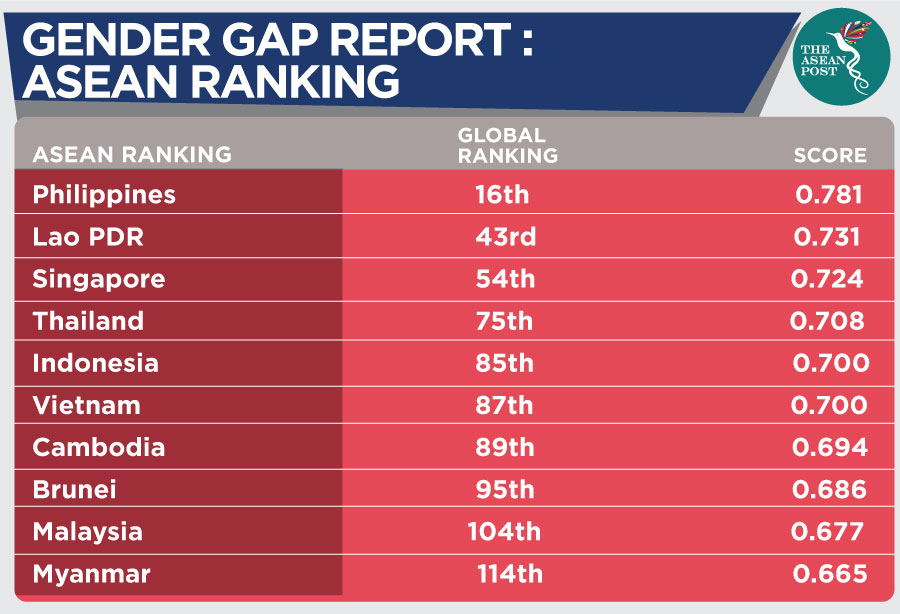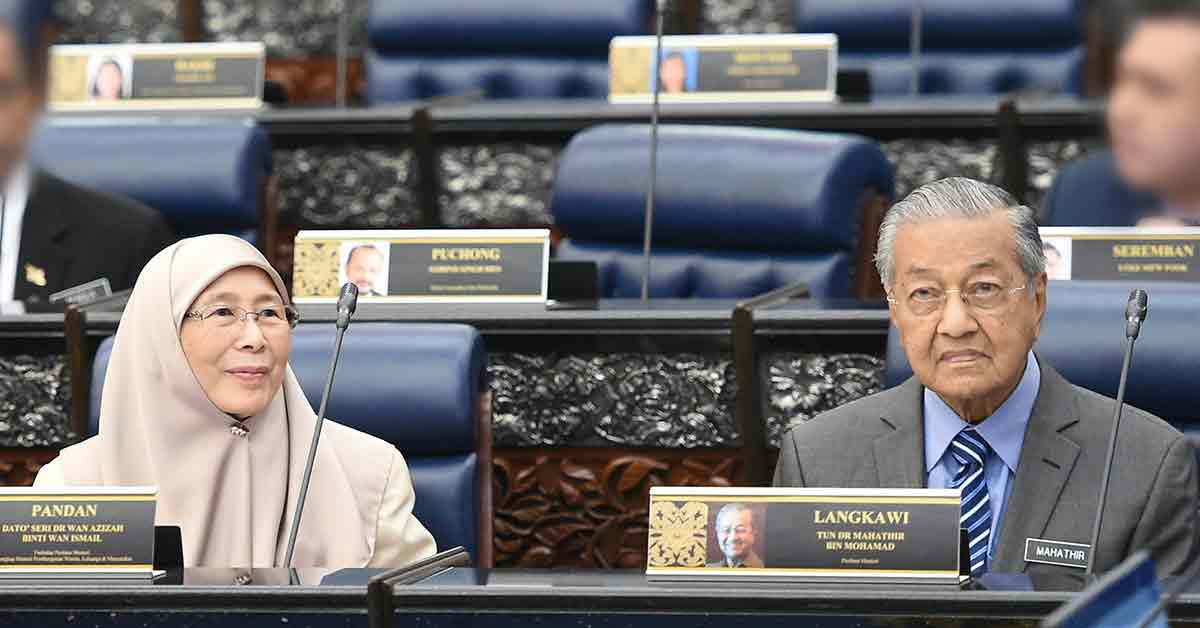While Malaysia’s male politicians continue to squabble over power, all the women seem to be left with are breadcrumbs.
Recently, the World Economic Forum (WEF) released its 2020 Global Gender Gap Report. While it was unsurprising that Nordic countries like Iceland, Norway, Finland, and Sweden were the top performers, some ASEAN countries like the Philippines – which managed to secure the 16th spot out of 153 countries – didn’t do too shabby either. The same, however, could not be said for most of the other ASEAN member states.
Last month, on 25 November, local Malaysian media had quoted the Department of Statistics Malaysia (DOSM) as saying that the country’s Gender Gap Index had improved, with increased women empowerment in politics being the greatest contributor to the better score. The index score for 2018 was recorded at 71.1 percent, a boost from 69.7 percent the year before, Department of Statistics Malaysia (DOSM) showed in its Statistics on Women Empowerment in Selected Domains.
The more recent WEF report, however, seems to paint a different picture for Malaysia.
While Malaysia was not a top performer in the 2018 Global Gender Gap Report either – having been ranked 101st place out of 149 countries – the 2020 Global Gender Gap Report placed Malaysia at an even lower rank at 104th place.
While, admittedly, there was an addition of four other countries in the more recent report – which could have altered Malaysia’s score to be slightly lower - the fact remains that Malaysia has a problem when it comes to realising equal rights among men and women.
This is similar in the case for the Political Empowerment dimension. In 2018, Malaysia received a score of 0.072 out of 1 and ranked 131st. Meanwhile, in the 2020 report, Malaysia received a score of 0.108 and ranked 117th. Improvement? Yes, but 117th place out of the 153 countries involved isn’t anything worth bragging about and still a long way from Philippines’ score of 0.353 and rank of 29th place for the same dimension – let’s not even talk about the Nordic countries for now.
As a matter of fact, Malaysia performed worst for Political Empowerment when compared to all other dimensions where - let’s face it - the country didn’t perform so well either.

Political empowerment
Prior to the Coalition of Hope’s (Pakatan Harapan) coming into power in the country’s May election last year, the coalition had promised to ensure that women had at least 30 percent representation in state and federal government. However, an article published by New Mandala last month noted that this promise has yet to be fulfilled.
While there has been an increase in the proportion of women in the federal parliament—from 10.8 percent after the previous election in 2013 to 14.9 percent currently — New Mandala noted that Malaysia continues to rank poorly in global indexes for women’s political representation and gender equality.
“As of 2019, there are 33 women in federal parliament (14.9 percent), five female Ministers (17.8 percent), four female Deputy Ministers (14.8 percent) and nine women in Cabinet (16.4 percent),” the article noted.
In fact, soon after the coalition came into power, a report from Reuters revealed that activists were “angered” over the low number of women who had so far been appointed to national and state governments run by Pakatan Harapan, with none meeting the target.
“We are holding the government accountable to its promise. We want an inclusive society,” said Angela Kuga Thas, executive director of the group Empower. She had led a small rally outside the national palace in the capital, Kuala Lumpur, where protestors held placards that read: “Women are ready to govern” and “We vote for change”.
Later, in March this year, Empower wrote a letter that was published by local news portal Malaysiakini. In it, the group wrote that, although it had then been close to a year since 9 May (the general election where Pakatan Harapan grabbed power), and despite implementing various initiatives on women’s empowerment through state-run institutions and appointing a female deputy prime minister for the first time in the nation’s history, the coalition had yet to prove its seriousness in placing women in decision-making positions in politics.
“Women are half of the Malaysian population, and women should hold at least half of the decision-making positions. This needs to be done right now for the betterment of democracy and truly a Malaysia Baru (New Malaysia),” the group wrote.
Judging from the numbers, Pakatan Harapan’s promise of 30 percent women representation in state and federal governments has not been fulfilled. Yet again, this is just another case highlighting the fact that Malaysia “improves”, but still has a long way to go.
Related articles
